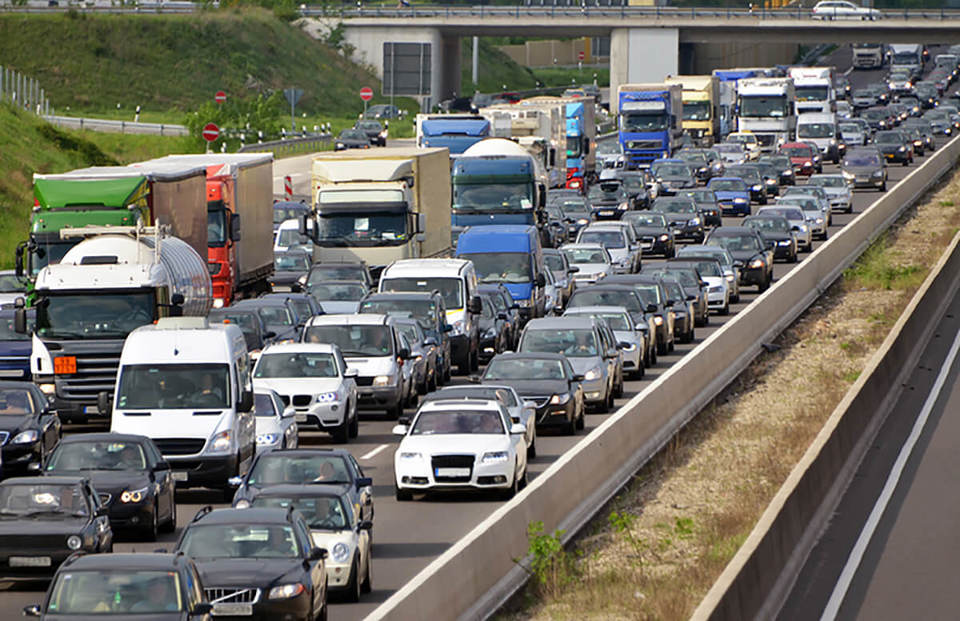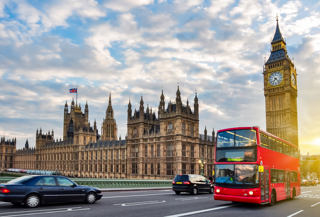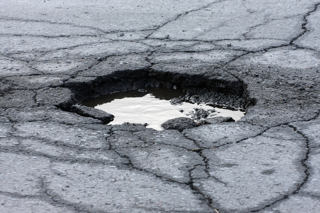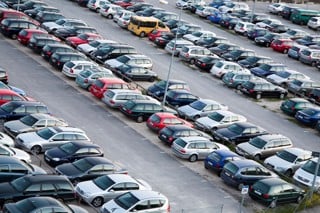The start of the summer school holidays is expected to generate more than 9 million additional journeys by car between Friday and Sunday.
Research conducted by the RAC of the travel plans of 2,300 motorists suggests that ‘getaway’ traffic will peak on Friday at around 3.8m separate leisure trips.
With normal weekday commuter traffic also vying for space on the roads, the RAC is labelling it as ‘frantic Friday’.
Data from transportation analytics provider Inrix shows drivers on some routes will experience some very lengthy delays compared to a normal Friday.
Those heading south on the M5 between Gloucester and Devon can expect delays of around an hour and a quarter, while those going west on the A303 between the M3 in Hampshire and A37 in Somerset – another very popular holiday route – can expect journeys to take an hour longer than usual.
A single breakdown or collision could easily extend these delays still further.
Saturday is likely to be the next busiest day on the roads, with the RAC estimating 3.2m leisure journeys by car, followed by 2.2m.
In total, over the 16 days between Friday (July 20) and August 4 the research suggests in the region of 34m individual leisure trips will be taken – with Saturday July 28 alone seeing in the region of 4.5m journeys.
RAC traffic spokesman Rod Dennis said: “This weekend tends to be one of the busiest on the roads for leisure journeys, second only to Easter and Christmas.
“On some popular routes, this may well mean gridlock, especially through the second half of Friday when commuters and holidaymakers will be sharing space on the same stretches of the UK’s roads. As a result, it will almost certainly feel like a ‘frantic Friday’ for some.
“The next peak after this weekend will be Saturday 28 July according to our research, by which time the vast majority of schools in England and Wales will have broken up for the summer. And if the weather remains fine, that could lead to many more people deciding to jump in the car to enjoy a short notice ‘staycation’, adding to the weight of traffic.”
Inrix data scientist Joshua Kidd said: “Our data suggests that the UK’s major transport corridors will be worst affected as the country’s schools break for the summer. As a result, the shortest routes to popular holiday destinations may not be the quickest.
“Drivers should ensure they check live traffic reports before setting off and consider using alternative routes to avoid the worst of the congestion.
“If possible, they should also try to leave early morning or in the evening, as the midday and early afternoon periods will be the busiest times to travel.”
Dennis added: “Where possible, we’d recommend drivers try to avoid the busiest times on the roads – or just allow for a longer journey by planning in enough stops, especially if travelling with young children.
“It’s also essential drivers know their vehicles are up to the job before setting off on a long drive – there are few worse ways to start a summer holiday than being stuck at the side of the road.
“A 10 minute check of the condition of the tyres on a car (and on a trailer or caravan if you have one), and of the oil and coolant levels, could save hours of misery.”
Travel this weekend – in numbers
|
Date |
Leisure trips by car |
Worst times to travel on major roads |
Best times to travel on major roads |
Worst roads for long delays |
|
Friday 20 July |
3.8m |
Between 1400 and 1730 |
Between 19:00 and 21:00 |
M40 south, J3a to J1a: 1hr 30min delay at lunchtime M5 south, J12 to J31: 1hr 17min delay late afternoon M5 north, J31 to J12: 1hr 9min delay mid-afternoon A303, M3 to A37: 52min delay late afternoon |
|
Saturday 21 July |
3.2m |
Between 1130 and 1300 |
Between 07:00 and 09:00 |
M25 anticlockwise, J23 to J16: 40min delay early afternoon M1 north, J6 to J23a: 20min delay late afternoon |
|
Sunday 22 July |
2.2m |
Between 1200 and 1300 |
Between 07:00 and 09:00 |
M25 anticlockwise, J23 to J16: 30 minute delay at lunchtime M40 south, J3a to J1a: 20min delay late afternoon |
|
Data sources: RAC and INRIX |
||||



















Login to comment
Comments
No comments have been made yet.